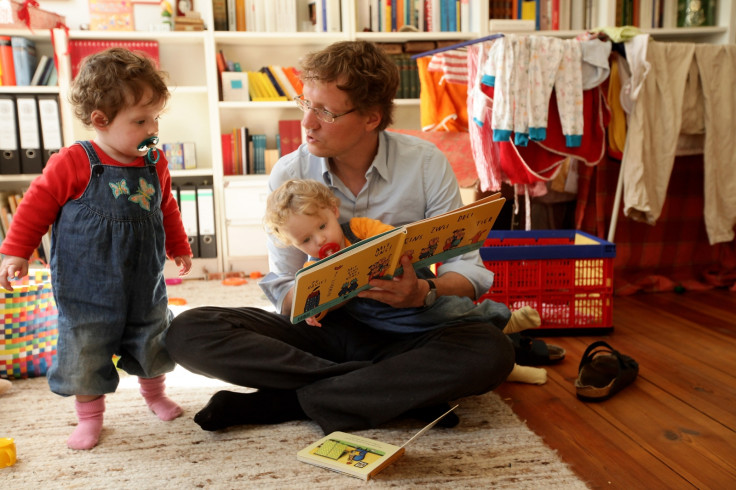Brain scans show how fathers are more attentive to daughters than sons
Paternal behaviours may reinforce gender stereotypes of their children.

Fathers behave differently with their toddler daughters than with their toddler sons, scientists have said. Dads not only act differently in their daily interactions with the children, but scans of their brains also revealed different patterns of activity depending on whether they have a boy or a girl.
In recent years, a number of studies has shown that fathers treat girls and boys differently – suggesting in some cases that their behaviours could reinforce gender stereotypes in their children.
This is nevertheless a complex area of research, and scientists are confronted with important methodological challenges.
For instance, studies often rely on parents' self-reports of their interactions with their children. These are not always accurate, meaning the findings are not always reliable.
Few studies have looked at whether these paternal behavioural differences could be linked to different paternal brain responses in male and female children.
The new study, published in the journal Behavioural Neuroscience, compares how fathers of young girls and fathers of young boys act, and analyses their neural responses when seeing pictures of their child.
Language, attention and games
The scientists recruited 52 fathers of toddlers – 30 girls and 22 boys – living near Atlanta (US). They asked them to wear a special device on their belts on a Monday and a Sunday, in order to record their interactions with the children. In addition, the mothers were asked to fill in questionnaires regarding the fathers' parenting.
The researchers found that fathers of girls were more likely to be attentive to their daughters' needs. They sang more to them than the fathers of boys, used more analytical language as well as language related to sadness and to the body (words such as "belly," "foot," "tummy"). The researchers say that these findings may be relevant in the future to understand why girls are more likely to report body dissatisfaction than boys.
In contrast, fathers of boys engaged in more rough and tumble play and used more language related to achievement (words such as "top," "win," "proud").
In the second part of the study, the fathers underwent functional MRI scans while the scientists showed them photographs of an unknown adult, of an unknown child and of their own child with sad, neutral and happy facial expressions.
Fathers of daughters appear to have greater responses to their daughters' happy facial expressions in areas of the brain important for visual processing, reward, emotion regulation, and face processing than fathers of sons.

However, the brains of the boys' fathers displayed a more active response to their sons' neutral facial expressions. More research is needed to investigate this aspect, but a hypothesis is that fathers of sons may find more reward in interactions that include ambiguous emotions.
No difference was observed in the participants' brain responses to sad facial expressions from sons or daughters.
Evolution or societal norms
This was just an exploratory study. Thus, it is not possible to say yet whether the different brain responses observed mean that fathers are hard wired through genetics or evolution to treat sons differently than they treat daughters, or if the fathers were only conforming to societal norms relating to gender. In addition, their interactions with the toddlers were only recorded over two days, so it's possible that they were not entirely representative of their usual behaviours.
What is clear is that there is a correlation between paternal behaviours and paternal brain responses to sons and daughters - and this will have to be investigated further in the future.
Lead author Jennifer Mascaro of Emory University commented: "Most dads are trying to do the best they can and do all the things they can to help their kids succeed, but it's important to understand how their interactions with their children might be subtly biased based on gender."
© Copyright IBTimes 2024. All rights reserved.






